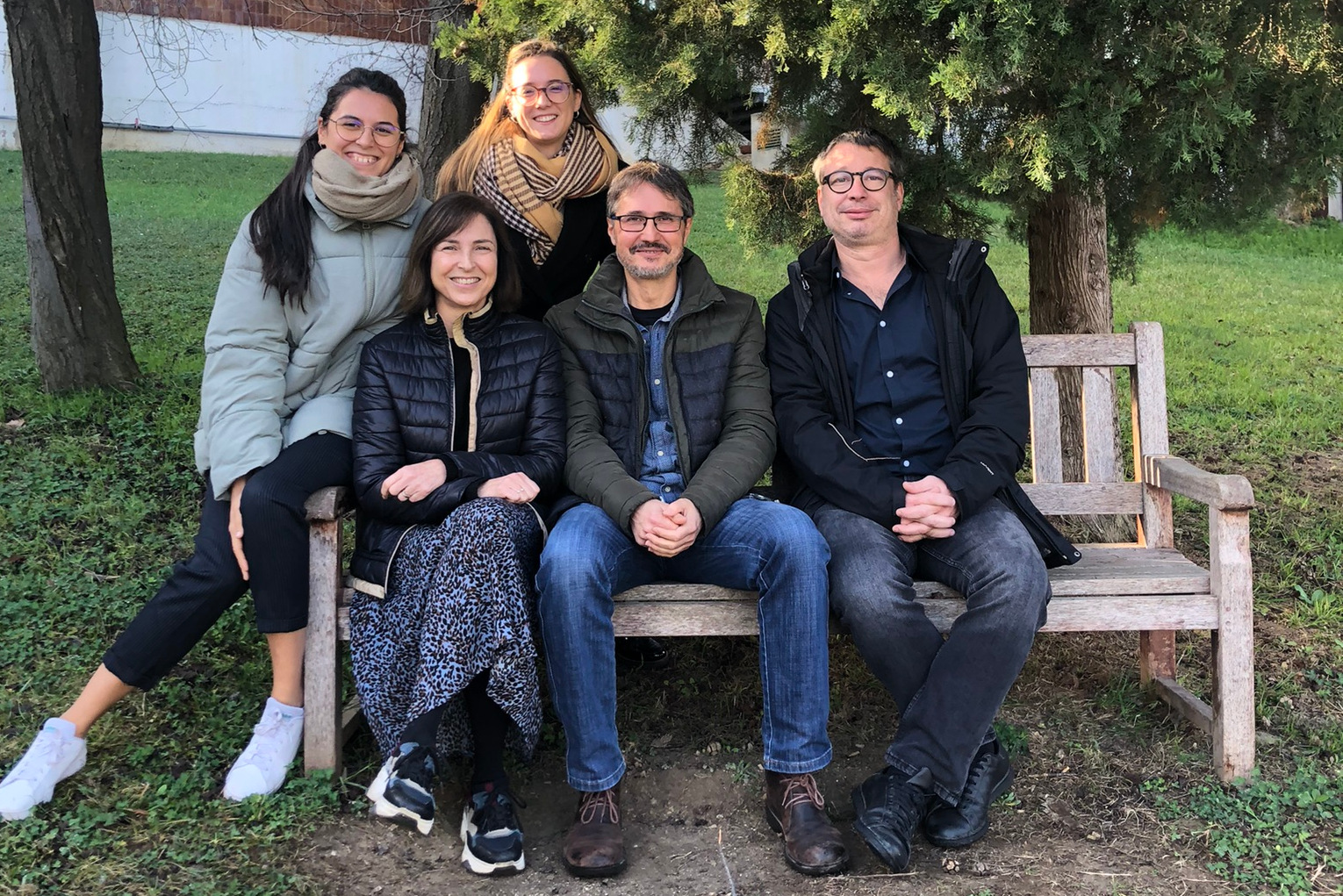Interview to Dr. Paula Escudero
Dr. Paula Escudero did a postdoc at the laboratory coordinated by Dr. Jose Manuel López Blanco, with whom she has recently published an article on how the cell culture medium conditions influence the study of Lesch-Nyhan's neurological disease.

Hello Paula! First, congratulations for the article you just published. Tell us a little about what you found.
There are two important parts. The first is that in cell cultures, to facilitate the growth of the cells, the medium researchers use usually has its components overrepresented. Cells are not studied in physiological conditions but having access to much more nutrients and vitamins. We study Lesch-Nyhan disease, a minority disease in which there is an alteration in an enzyme. And we know (from a previous article by Dr. Jose Manuel López) that the fact that vitamins are in high levels, specifically folic acid, compensates for the malfunctioning of this enzyme, hiding cells alterations. In this article, we describe how we used a medium called Plasmax to which we added vitamins only at physiological levels. We called this medium Plasmax-PV (Plasmax-Physiological Vitamins).
Having described what we consider the optimal culture conditions for studying this disease, in the second part of the article, we analysed patients’ fibroblasts compared to healthy fibroblasts. We saw that sick cells have alterations in mitochondria, an increase in folate transporters and difficulties in migration, among other problems.
And what happens to people who suffer from Lesch-Nyhan?
It is a neurological disease that can be very serious. There are degrees, according to how altered the functionality of the enzyme is. If it is mild, we may only see an accumulation of uric acid in the tissues that can be easily treated with allopurinol. If it is serious, patients present important neurological damage and their life expectancy and quality of life can be seriously reduced, since there is currently no treatment.
And have you always done research in this disease?
I did my thesis on molecular genetics, a very basic field of research that fascinates me, but which is far from its application in human diseases. I missed it a little. That is why I was interested in the postdoc offered by Dr. López-Blanco, which involved working on a biochemistry project, linked to the clinic.
Did you work with patients?
Yes, although our group is not in direct contact with them. The fibroblasts samples came from Atlanta and the urine ones, from Madrid.
What do you like most about being a researcher?
It's a very creative job. It never becomes repetitive (except when you have to optimize a technique, which then yes!). I would almost say that it is an artistic job, where you have to be looking for solutions to all the challenges that arise. You are always growing and evolving, and you never run out of things to learn.
And what less?
Here the conditions for being part of the academy are very limited and unstable. In addition, as a scientist you are defined by what you publish and where you publish it, which does not always depend on how well you have worked: you may come across negative results and no one will want to publish them. For me, the goal of doing science should not be to publish, but to create reliable knowledge. The problem is these are the items they take into account to give you money and without money you can't keep researching.
And what do you want to do now that you've finished your PhD in Dr. Lopez-Blanco?
I am looking for options outside the academia because I want to continue doing research without the job instability that entails having to apply for grants. But I really encourage people to do a postdoc after their PhD. The experience as a postdoc is very different than what it is as a student. As a postdoc you are not so focused on producing, the work is more about stopping and thinking of where you are taking the experiments. I've really enjoyed it and I've grown a lot professionally!